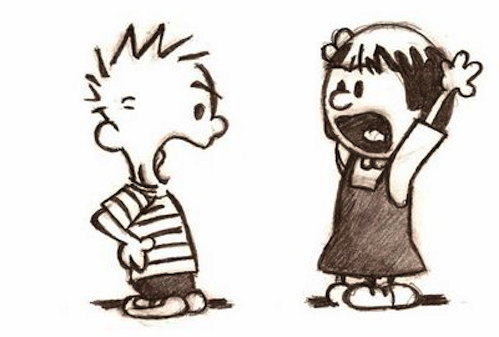 This course has opened our eyes to a variety of theories used in the field of family counseling. While we are not in a counseling program, it's understood that educational leaders are often called upon to mediate conflict within their buildings, whether between staff, students, parents, other admin, or some combination of them all.
This course has opened our eyes to a variety of theories used in the field of family counseling. While we are not in a counseling program, it's understood that educational leaders are often called upon to mediate conflict within their buildings, whether between staff, students, parents, other admin, or some combination of them all.
What struck me as we examined recent counseling theories was that they all have a systems thinking philosophy at their core. The Bowen Theory, Open Dialogue, and Collaborative Theory are all approaches to conflict resolution that embrace the realization that all parts of a system are connected. Conflict in one area is affected by and will affect the other parts of one's life. Mediators - whether they be trained counselors or educational leaders - need to be aware of this and look for ways to promote healing across environments.
Founded on the idea that "it takes a village to raise a child," this style of family therapy has those at the centre of the conflict surrounded by friends and supporters. This can be informally around the kitchen table, or more formally in a counseling centre. The facilitator (a more gentle and less intrusive title than counselor), first asks those involved in the conflict to say their piece. The supporters, or Reflecting Team, remain silent and listening. Once those in conflict have stated their concerns, the facilitator asks the Reflecting Team to speak to each other about what they have heard. They are not interacting directly with those at the centre of the conflict, but are instead rephrasing and commenting upon what they heard. As they are friends and family, they will have the ability to shed light on the conflict and offer new perspectives, all while those in conflict listen silently. The facilitator asks pertinent questions, and when the time is right, the spotlight shifts again to those in conflict. Back and forth this process goes, while those present are engaged in listening carefully to the various perspectives, working toward a resolution.
As a way to present this form of conflict resolution to our classmates, my group created a kitchen table setting for our peers, complete with soup, biscuits, and tea. While we provided the conflict scenario, our classmates played the role of the Reflecting Team. Sipping on tea and spooning up soup, each member of the class listened to our conflict and, when prompted by the group's facilitator, offered up their thoughts and reflections. Even though our "conflict" was fabricated (albeit based on some recent parent-child conflict I may have experienced!), the feedback from the Reflecting Team was incredibly valuable. It is that feeling of truly being heard that makes this form of conflict resolution so powerful.

No comments:
Post a Comment